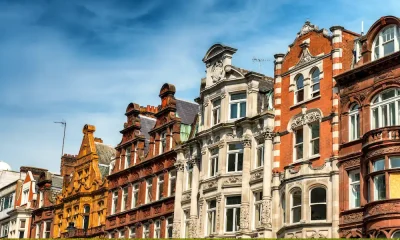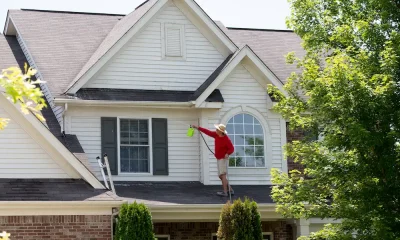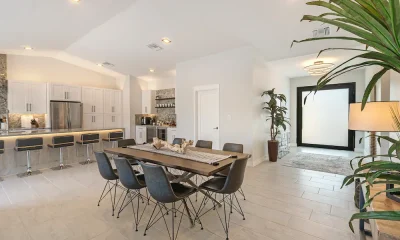Buy
Seven Considerations When Buying Your First Home
So, you are looking to buy your first home? This is an exciting, albeit stressful, experience. No matter whether you are looking for a studio flat in London or a spacious three-bedroom house in Brisbane, you need to approach the process with care if you are to have the happy ever after you envisage. Below, we reveal seven key considerations you need to give a lot of thought to before buying your first home.

So, you are looking to buy your first home? This is an exciting, albeit stressful, experience. No matter whether you are looking for a studio flat in London or a spacious three-bedroom house in Brisbane, you need to approach the process with care if you are to have the happy ever after you envisage. Below, we reveal seven key considerations you need to give a lot of thought to before buying your first home.
1. Your eligibility for any help-to-buy schemes
The first thing you need to do is determine whether you are entitled to any help along the way. There are various schemes across the world. For example, in the UK, the Help to Buy scheme involves an equity loan from the government, covering up to 20 per cent of the cost of a new flat. In Singapore, first-time homeowners may be eligible for a grant of up to $20,000 for a resale HDB, lowering the overall cost of their new property. There are schemes, grants and loans like this from country to country, so make sure you are aware of all of your options before moving forward. You don’t want to miss out on some huge savings!
2. Calculate how much money you will need
One of the biggest mistakes first-time property buyers make is underestimating the amount of money they will need. Unfortunately, the asking price is only the start when it comes to the expenses you will face during this period. Make sure you are fully aware of every potential payment you may need to make. After all, it is always better to overestimate than underestimate. So, firstly, you will need to get your deposit together. There are then mortgage set-up fees, a mortgage arrangement fee, and you will need to pay a mortgage broker if you choose to hire one. You should also get the property surveyed before purchasing to make sure there aren’t any problems. This is another expense, yet it could save you a huge amount of money in the long run, so don’t overlook it. There are then legal costs and any property taxes. Also, if you are borrowing the majority of the value of the property, your mortgage lender may charge you a fee to take out insurance cover, which will protect them should you default on your repayments. For more information on common home buying mistakes, take a look at our blog post.
3. Consider the future
Of course, predicting the future is impossible, but there are certain things you can look out for to ensure you don’t experience any disasters along the line. For example, take a look at statistics regarding property prices in the area over the past few years. Have they been declining? This is an indication that your property could lose its value as time passes. Also, find out whether there are any development plans in place for the future. You may have chosen somewhere because you love the rural land; well, you won’t love it if they are planning to build a huge shopping development there in the next few years!
4. What is important to you?
Before you begin searching for a property, make a list of all of the non-negotiables, i.e. things you aren’t willing to give up. Make sure you stick to this list. For example, don’t buy a two-bedroom house if you know you want children in the near future. Don’t opt for a cheaper apartment in a huge complex if you want peace and quiet. Undoubtedly, you will need to make some compromises at some point, but make sure they aren’t compromises that are going to be a major strain.
5. Organising a home inspection
This is something we touched upon briefly when dealing with finances earlier in the article. However, it is so important, it deserves its own mention. A home survey is of paramount importance. It doesn’t matter whether you are an experienced DIYer or you are running low on funds, this is one part of the process you simply cannot neglect. A home inspector will perform a mechanical, unbiased evaluation of the property, noting any potential problems so you know exactly what you are getting when you buy the house or flat. Leave this to the professionals; they know the area, and so they will know certain things to look out for, and you already have plenty of other things on your mind, meaning it is likely that you will miss something.
6. Is the neighbourhood right for you?
When you buy your first home, you aren’t just buying bricks and mortar, you are buying into a lifestyle, and so inspecting the neighbourhood is of paramount importance. Let’s start with the obvious; if you have children, find out everything you can about the local schools. You should also find out about your local amenities, public transport, parking, and crime statistics. Take a stroll and talk to the locals if you can; they are bound to have some useful information to share.
7. Are you thinking with your heart or your head?
Buying with your heart is one of the easiest mistakes to make. You fall in love with a property, and so you overlook all of the flaws because you simply must have it! Don’t do it. You need to be brutally honest with yourself when buying a property. This is a huge investment, and it needs to be treated as such. You are going to invest masses of time, money and labour, and so you need to think about every aspect with a cold, hard eye.
So there you have it; seven considerations for first-time property buyers. Make sure you give each point a lot of careful thought before you dive into the buying process. From getting into the right frame of mind to assessing the neighbourhood’s suitability, there is so much that needs to be considered. It can seem a lot to take in, but you will thank yourself in the long run when you are blissfully happy in your new home.






